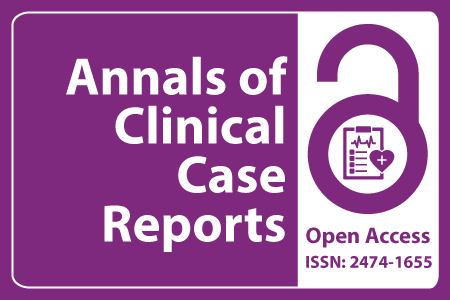
Journal Basic Info
- Impact Factor: 1.809**
- H-Index: 6
- ISSN: 2474-1655
- DOI: 10.25107/2474-1655
Major Scope
- Child Birth
- Obstetrics and Gynecology
- Family Medicine and Public Health
- Hematology
- Oncology Cases
- Dentistry and Oral Biology
- Internal Medicine
- Endocrinology
Abstract
Citation: Ann Clin Case Rep. 2021;6(1):2071.DOI: 10.25107/2474-1655.2071
Patients at High Risk of Poor Outcomes for Acute Heart Failure
David Smith1*, James Ampadu2, Maen D Abou Ziki1 and Forrester A Lee1
1Department of Internal Medicine, Section of Cardiovascular Medicine, Yale University School of Medicine, USA
2Department of Internal Medicine, Division of Cardiology, Mercy Hospital St. Louis, USA
*Correspondance to: David Smith
PDF Full Text Research Article | Open Access
Abstract:
Heart Failure (HF) affects approximately 5.7 million adults in the United States and burdens the healthcare system with substantial morbidity, mortality, and cost. Episodes of Acute Heart Failure (AHF) account for 1.76 million hospitalizations per year, which are associated with high rates of readmission and postdischarge mortality. The early postdischarge period following AHF-initiated hospitalization is a particularly vulnerable time. Also, identifying which patients are at highest risk of postdischarge mortality or readmission, and which patients may benefit from closer follow-up, is complex-as evidenced by the multitude of clinical risk scores developed for this purpose. Most mortality-risk models include advanced age, low blood pressure, low sodium concentration, and impaired renal function. However, clinicians should be aware that risk-stratification tools may not account for other established or emerging prognostic factors, which include the presence of organ damage, length of hospital stay, socioeconomic status, social and/or family support, and social stability. Each episode of acute decompensation leads to further deterioration of cardiac and kidney function and progression of HF, with hospitalization for AHF itself a strong predictor of subsequent death in patients with chronic HF. This underscores the importance of efforts to avoid acute episodes through optimization of chronic HF management. Appropriate patient education, timely followup, and effective treatment of comorbidities are important for postdischarge HF management. Moreover, Guideline-Directed Evaluation and Management (GDEM) of patients with HF should be optimized by awareness of updates and appropriate implementation of newly added therapies.
Keywords:
Heart failure; Hospitalization; Comorbidity; Blood pressure; Dyspnea
Cite the Article:
Smith D, Ampadu J, Abou Ziki MD, Lee FA. Patients at High Risk of Poor Outcomes for Acute Heart Failure. Ann Clin Case Rep. 2021; 6: 2071..













